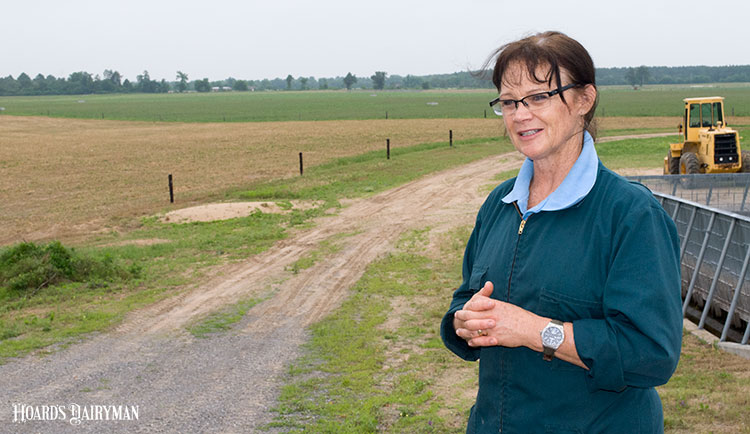
Raising their family on the farm is an added benefit of the job that many dairy farmer parents cherish. Often, it allows and encourages farm owners to think about what the future of the farm may hold and how they can better prepare the land and business for continued success.
Most farms have that goal to pass the business on to a next generation, just like the majority of all types of family-owned businesses in the U.S. Still, a 2016 survey of family businesses found that 43% of them didn’t have a succession plan in place to do so. Unfortunately, that’s often the case in agriculture and on dairies, too.
Transitioning a business in a family is, of course, harder because emotions run higher than in typical business. But that doesn’t mean the succession is impossible, said Brenda O’Brien in a presentation for Mid-Atlantic Farm Credit. O’Brien grew up on a dairy farm in New York that has transitioned, and she now serves as a consultant with NY FarmNet. While each farm’s unique situation means there is no “cookie cutter” way to develop a succession plan, O’Brien shared some best practices to help the process go smoothly.
Have the conversation
Starting to consider the future of the farm can be the toughest part, but knowing how you will exit a business is as important as the effort to start it, O’Brien said. She advised having those discussions early in order to set expectations and avoid crisis planning. A well-defined plan removes the conflict of the involved parties not knowing where they stand.
“When they already know how things are going to play out, it takes the pressure off,” O’Brien said. Similarly, a plan also removes the pressure of having to find a way forward if an emergency, such as a death, were to occur. Crisis planning is the worst form of planning because we often don’t make the best decisions.
She recommended starting with an idea of the date when the older generation would like to phase out of the farm, whether that’s full retirement or just doing fewer day-to-day tasks. This can be fluid if necessary, but having a goal on paper provides vision.
There may be some disagreement around these conversations, but make the effort to have respectful communication. “We tend to take out the worst side of us on the ones we love most,” O’Brien cautioned. Listen thoughtfully, ask questions, and acknowledge that different perspectives don’t make one person right and another wrong.
It may be helpful to bring in an outside facilitator for these conversations, she added. Whether a consultant, accountant, lawyer, estate planner, or even a farmer who has transitioned successfully, involving others in your entire process can be eye-opening and provide accountability.
Transferring knowledge
On the production side, O’Brien offered these areas to focus on: make sure the business is viable, be transparent about the financials, have the incoming generation get off-farm experience, and be intentional about management transfer.
Farm viability is not something people may often think about in a transition, but you must consider if the business can sustain who’s coming in and while supporting those going out if necessary, she said. Be honest about the balance sheet, and share that with the incoming generation. Financials should not be kept private until they own everything, O’Brien emphasized. “That’s overwhelming, and it’s not fair to them,” the consultant said.
Another key is supplementing what the younger generation has often been learning their whole life. O’Brien encouraged off-farm education, whether that’s formal in college or trade school or informal by working for someone else.
Then, when they return, be intentional about transferring management duties. The older generation cannot just retain all of the information, she stressed. Teach and train little by little so that the incoming manager is prepared and can begin taking on responsibility. To start, O’Brien recommended choosing one area for the year, such as financials or crop work, and explaining the decision-making processes along the way. She noted that this may be scary for the older generation, but if the goal is to pass the business on, the process has to start.








